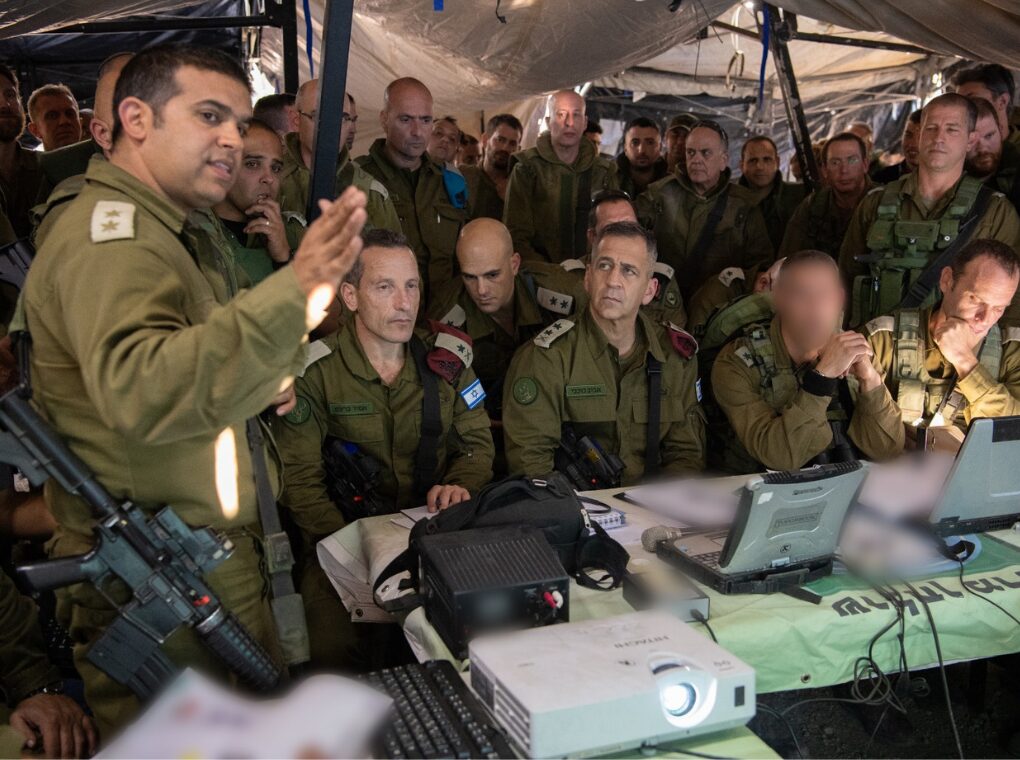In a significant shift in military policy, the Israeli Defence Forces (IDF) have announced mandatory training in Arabic language and Islamic studies for all personnel in its Military Intelligence Directorate, known by the Hebrew acronym AMAN.
This initiative, spearheaded by AMAN chief Major General Shlomi Binder, represents more than just a tactical upgrade—it reflects a strategic reassessment of how Israel gathers, interprets, and acts upon intelligence in an increasingly complex Middle Eastern environment.
The move is also a direct response to acknowledged shortcomings in intelligence analysis, particularly around critical events such as the October 7, 2023, security failures.
Strategic Reorientation After Intelligence Failures
The IDF’s decision is rooted in the need to address fundamental gaps in its understanding of the Arab and Islamic world, especially as these relate to the evolving geopolitical and security landscape.
According to the Jerusalem Post and Army Radio reports, the impetus for this initiative came after a failure to anticipate and interpret significant threats from actors like Hamas and the Houthis, which culminated in surprise attacks and operational setbacks.
Israel’s intelligence services have historically excelled in technical capabilities—signals intelligence (SIGINT), surveillance, cyber operations, and military espionage. However, language barriers and cultural misinterpretations have undermined the capacity to effectively understand, predict, and influence adversary behavior. The mandatory inclusion of Arabic and Islamic studies is designed to close this critical gap.
Language as a Tool of Intelligence
Language is not merely a medium of communication; it is also a key to accessing thought patterns, cultural norms, and socio-political nuances. In intelligence work, especially human intelligence (HUMINT) and open-source intelligence (OSINT), subtle linguistic cues can make the difference between accurate analysis and deadly miscalculations.
The new IDF program goes beyond Modern Standard Arabic (MSA) to include specialized training in regional dialects, specifically those used in Yemen and Iraq. This is crucial, as dialects often deviate significantly from MSA, and intelligence analysts have reportedly faced challenges in deciphering intercepted Houthi communications.
Compounding this difficulty is the unique speech modulation caused by the use of qat—a stimulant leaf widely chewed in Yemen—which can distort pronunciation and speech patterns.
By incorporating dialect-specific training, the IDF aims to sharpen its analytical precision, making it better equipped to handle intercepted messages, media broadcasts, social media monitoring, and on-ground interrogation or negotiation scenarios.
Understanding the Cultural and Religious Landscape
Equally critical is the focus on Islamic studies. A deep understanding of Islam, including its theological, historical, and sectarian dimensions, is essential for anticipating ideological motivations, community dynamics, and religious symbolism that often underpins actions by groups such as Hamas, Hezbollah, the Houthis, and various Iraqi militias.
A senior AMAN officer admitted to Army Radio: “Until now, we haven’t been good enough in the areas of culture, language, and Islam. We need to improve in these areas.” This level of self-critique is rare and indicates a broader institutional recognition that technological superiority must be accompanied by cultural fluency.
Studying Islam in its doctrinal and sociopolitical contexts enables intelligence personnel to better map out radicalization pathways, religiously motivated propaganda, and even anticipate calendar-based operations tied to Islamic events and symbolism. It also enhances the capacity for psychological operations (psy-ops) and counter-radicalization strategies.
Institutional Reform and Long-Term Planning
The decision to open a dedicated department for Arabic and Islamic education within the IDF signifies a structural reform, not just a training adjustment. Such an institutional commitment reflects the military’s long-term recognition of the changing nature of warfare and intelligence.
In parallel, the IDF plans to reopen TELEM, an educational initiative focused on Arabic and Middle Eastern studies in middle and high schools across Israel. This civilian component complements the military program by creating a pipeline of linguistically and culturally literate youth who may eventually join the IDF or intelligence services.
The closure of TELEM due to budget constraints had led to a decline in the number of Arabic-proficient recruits—an issue now being actively reversed.
This multi-tiered approach—from schools to active military units—represents a rare example of whole-of-society defense preparedness, with language and culture at its core.
Risks, Limitations, and Ethical Considerations
While the initiative is strategic, it does come with risks and limitations. First, linguistic fluency and cultural empathy are difficult to compress into military training modules. True proficiency often requires immersive, long-term engagement—something that may be hard to scale quickly across thousands of personnel.
Second, the militarization of religious and cultural knowledge can be ethically sensitive. It may reinforce perceptions of cultural instrumentalization, where knowledge of Islam and Arabic is used solely to target, monitor, or manipulate Arab and Muslim communities. If not carefully managed, this could deepen mistrust and exacerbate the adversarial dynamics between Israel and its neighbors.
Moreover, there’s the challenge of ensuring that such training does not descend into reductive stereotyping. The diversity within the Arabic-speaking world and Islamic communities is vast; effective training must emphasize this nuance.
Israel’s mandatory training program in Arabic and Islamic studies for its intelligence personnel marks a critical evolution in its military doctrine. By acknowledging past failures and investing in linguistic and cultural fluency, the IDF is adapting to the demands of modern hybrid warfare, where understanding the enemy’s mind is just as important as tracking their movements.
This shift may not only enhance Israel’s intelligence capabilities but could also foster more informed engagement with the Arab and Islamic world. Whether this initiative leads to deeper insight or merely sharper surveillance will depend on how it is implemented, taught, and integrated into broader strategic objectives.
